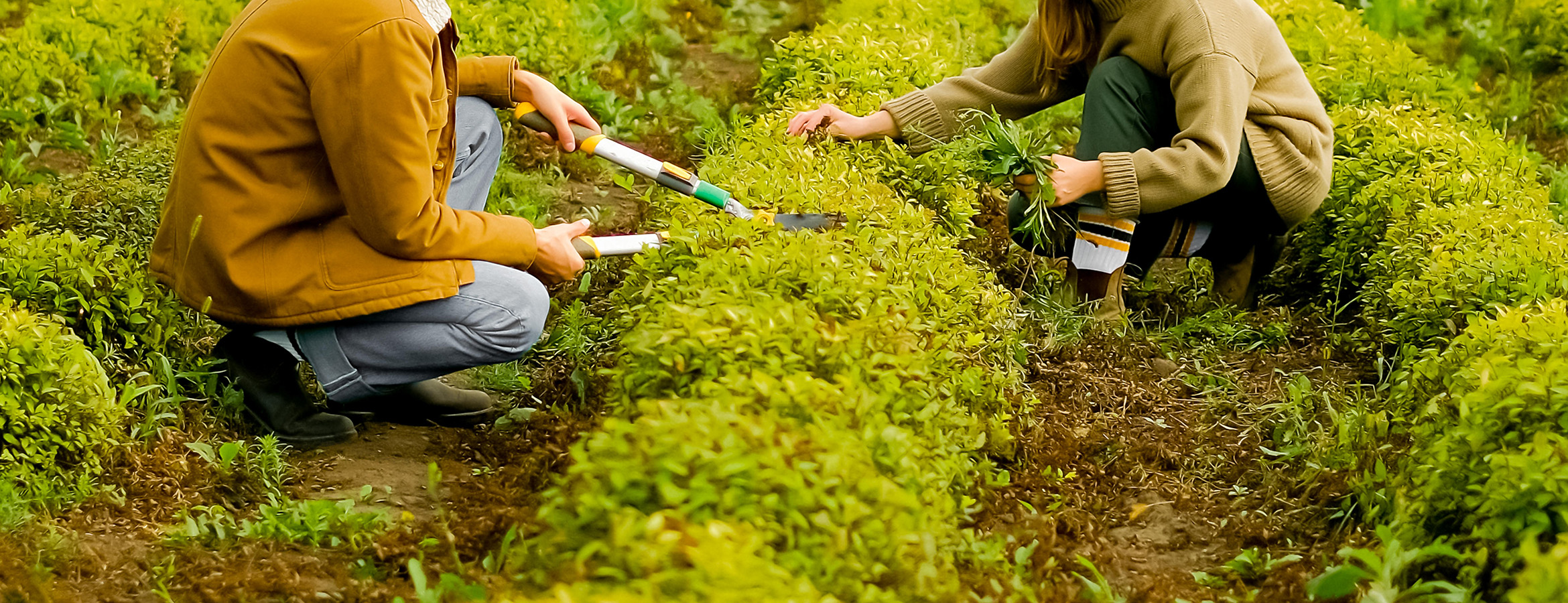What should you do with your yard waste?
In some areas, improper disposal of yard waste items may leave homeowners subject to a fine. But if disposed of properly, your yard waste can be repurposed into beneficial mulch, soil, or compost.

For many homeowners, there is no greater satisfaction than the sight of a freshly manicured property. No matter what type of lawn you prefer – a perfectly striped, vibrant green plot or one bursting with trees, shrubs, and flowers – doing a little clean-up here and there is bound to leave you with some yard waste on your hands.
It’s important to know how to properly dispose of those lawn clippings, leaf piles, and stacks of sticks, as tossing these biodegradable materials in your garbage bin unnecessarily takes up precious landfill space. Disposal costs for state-of-the-art landfills range from $30 to $60 per ton, and landscape refuse accounts for up to 20 percent of the wastes being placed in landfills, according to the University of Kentucky Cooperative Extension Service. When yard waste decomposes in landfills, it generates methane and acidic leachate, both harmful to humans and the environment. Because of this, municipalities that offer yard waste pick-up often have rules banning the mix of organic waste with your everyday garbage. In some areas, improper disposal of yard waste items may leave homeowners subject to a fine.
However, if disposed of properly, your yard waste can be composted into beneficial mulch, soil, or compost. Follow these tips to ensure your yard’s leftovers land in the right place.
- Know what is and is not considered yard waste.
The general rule of thumb is that organic materials generated from regular yard and garden maintenance pass the yard waste test. Specific guidelines vary by area, but the following items are widely accepted as yard waste: grass clippings, leaves, tree trimmings or fallen branches/twigs, weeds, pine needles, and garden remnants. Things that generally do NOT count as yard waste include dirt, rocks, fencing, flower pots, plant tags, empty mulch/soil bags, and pet waste.
- Place trimmings and clippings in the proper container.
If you have curbside yard waste pick up, make sure you are using a pre-approved container. In the long run, re-using a durable, plastic bin with sturdy handles for pick-up crews may be your best bet. (Pro-tip: Be sure to clearly mark the container with “yard waste.”) Another great option is a pack of paper yard waste bags. These large, reinforced bags can be composted and are conveniently available at most hardware or home improvement stores. Stray from the use of plastic bags, which interfere with the composting process and must be manually separated at the facility, a costly and tedious task.
- Put nature to work.
- Fertilize: Are you a chronic bagger? It’s a common misconception that leaving grass clippings in the yard will reduce the health of your lawn. Clippings will not damage your grass. In fact, it’s quite the opposite. Grass clippings will quickly decompose and release valuable nutrients back into the soil, reducing the need for supplemental nitrogen fertilization by 25 to 50 percent, according to the EPA.
- Reallocate: If you’re thinking about raking your leaves into discard piles, why not mulch them with your mower instead? With just a few passes, the leaves will be barely visible, but they’ll work to stabilize soil temperature, prevent weeds, and feed the soil for healthier growth. In addition, a dose of mulched leaves reduces the need for watering your lawn and prevents leaves from clogging up stormwater drains and causing flooding.
- Enhance: For those who garden, grass clippings also make a great addition to vegetable plots or flower beds! Sprinkle dried remnants on the surface to help retain moisture, suppress weeds, and add nutrients for your plants, weeds, and feed the soil for healthier plants and grass that require less fertilizer and watering.
- Repurpose: Composting is a great backyard science experiment that will leave you with a valuable nutrient-rich garden additive. Among gardeners, compost is known as “black gold” because of its many benefits as a soil amendment, including improvement of soil structure, aiding microbial activity, moderating soil temperatures and moisture levels, and providing slow-release, organic nutrients. Any organic material can be composted. However, some items are more desirable and easier to work with than others. Yard waste such as leaves, grass clippings, straw, and nonwoody plant clippings produce high-quality compost with relative ease. You can also throw in kitchen waste (such as coffee grounds, egg shells, and vegetable scraps), sawdust, and wood ash. Stray from adding pet feces, which can transmit diseases, or meat, bones, whole eggs, or dairy products, which may attract rodents.
Want to learn more? This document from the UK Cooperative Extension Service is full of information for composting beginners.
>> At Kentucky Farm Bureau, we’re just as invested in your home as you are. We help protect what’s important to you – from farms and fishing boats to minivans and mobile homes. To see a full list of products we insure, click here.
